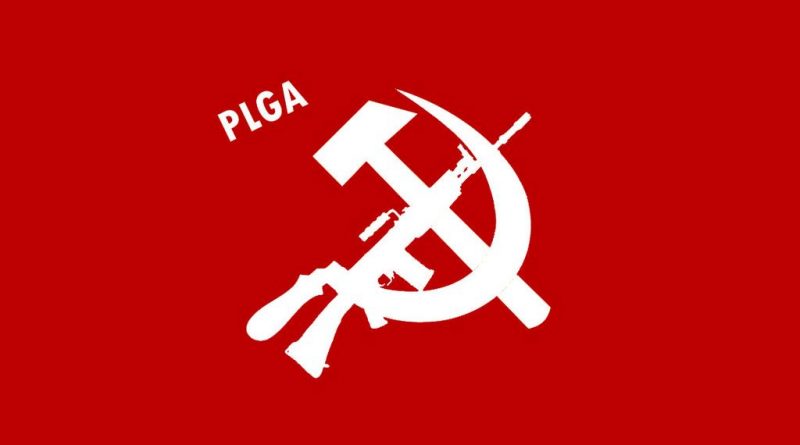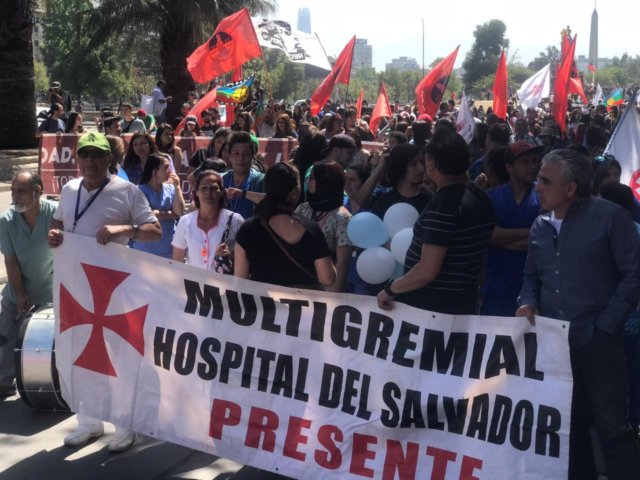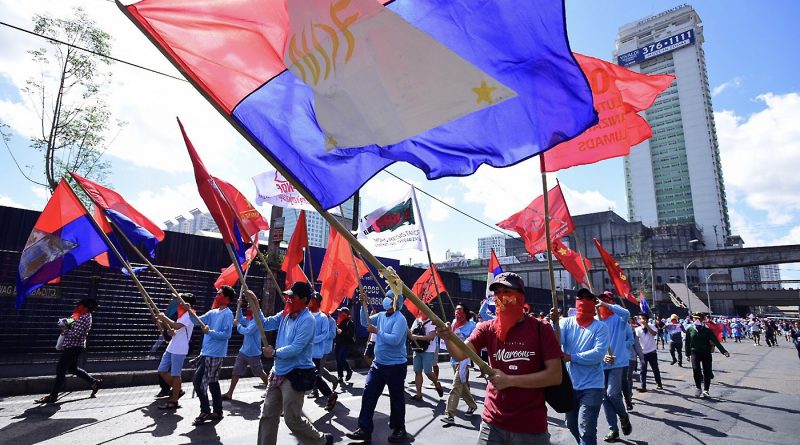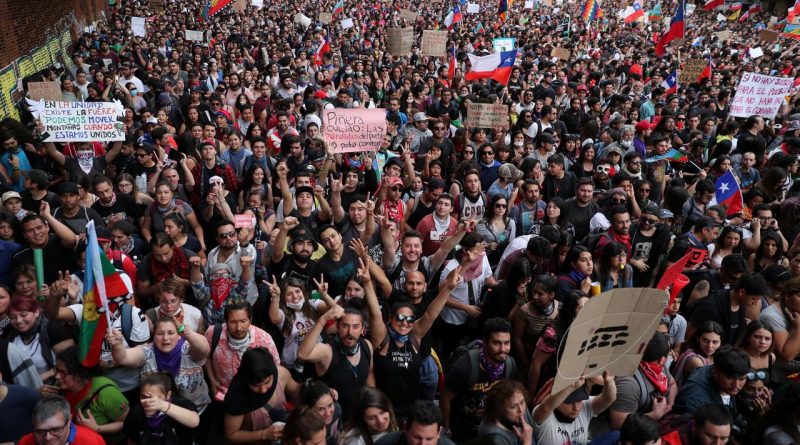Report back from the 7th Congress of the MER-RSM
The seventh congress of the MER-RSM has concluded, having been
held from Nov. 23-24, 2019. This congress was long overdue, though it
was still held in 2019, as resolved at the time of the previous congress
nearly three years ago. This congress was marked by numerous struggles
on issues of crucial importance to the RSM. There were also certain
minor logistical problems in the planning and execution of this congress
which we will be able to rectify in the future. Several workshops were
given which educated the congress delegates in the production and
delivery of various forms of propaganda. A new Coordinating Committee
was also elected to guide the RSM until the next congress.
Some of the most prominent victorious struggles waged by the congress
delegates include the struggle for the establishment of methods for
upholding proletarian feminism and combating patriarchy, on changing the
primary focus of the RSM from on-campus to off-campus organizing, on
the establishment of an internal journal for recording political
experiences and waging line struggle in the RSM, and on not changing the
organization’s name in a misguided attempt to symbolize rectification
of past mistakes. All congress resolutions and the updated constitution
can be found online at mer-rsm.ca.
In recognition of the of the RSM’s failure to properly investigate
instances of patriarchal abuse, and to systematically eliminate
patriarchal behaviour and ideology in the RSM, and that this failure has
caused significant harm to RSM sections, members, and periphery, a
proletarian feminist committee was created. This committee will have
members from all RSM sections, and will investigate instances of
patriarchal behaviour when reported to it, as well as develop training
and behavioural guidelines for proletarian feminist praxis, and work to
further develop proletarian feminist theory itself as much as possible.
The congress also resolved to actively work to support and defend
survivors of sexual violence on an ongoing basis.
In a major strategic shift, the congress rejected the General
Assembly strategy of the previous congress, as well as a newly proposed
strategy of building proletarian student unions on campuses. Instead the
congress recognized that the relationship of on-campus to off-campus
organizing must be based on the relative balance of class forces in a
given educational institution. In high-schools or CEGEPs which are
largely proletarian, on-campus work may take precedence, but in most
universities, bourgeois elements are overwhelming. In this case, RSM
sections must limit on-campus activities to propaganda work, study
groups, and combating class enemies; the greater part of its effort must
go toward bringing students out of the campus to aid in building the
larger proletarian revolutionary movement. Using the slogan “Students to
the Streets!”, we will work to determine those methods by which
students can build the workers, youth, and other movements.
In an affirmation of the place of Marxism as the science of class
struggle, the RSM has ratified the creation of the RSM Internal Journal,
which all RSM sections will contribute to and which will be published
once per term. The campaigns of all RSM sections will be summed-up and
analyzed in journal articles, so that other sections can read and learn
from them. The journal will also be a space for new theories to be
proposed and line struggle to occur. The congress also elected an
editorial committee which has been tasked with reviewing submitted
articles and preparing the journal.
One of the final motions presented was to change the RSM name. This
motion was presented in light of the various mistakes the RSM has made,
including in failing to apply proletarian feminism, but also others
which have harmed the RSM image and made organizing under the banner of
the RSM more difficult for local organizers. This motion was roundly
defeated after much discussion. In the end, it was confirmed that the
RSM’s newer resolve to uphold and apply proletarian principles is not a
break with RSM principles, but an affirmation of them. In places where
the RSM has made more harmful mistakes, organizing as the RSM will be
difficult, but changing the name will not undo the mistakes; only
effective organizing that serves the needs of the masses will win their
forgiveness.
The minor organization problems include difficulty in arranging
transportation to the congress, such that the Vancouver and
Kitchener-Waterloo comrades were unable to attend. This was mostly a
result of the lack of budget and time in organizing the conference,
though a lack of effective communication within the RSM contributed as
well. In the future, better communication networks and less urgency will
allow all RSM sections to send delegates to the congress.
This congress has allowed the RSM to affirm its unity and its
commitment to rectifying errors. Our new scientific journal will enable
us to continually develop ever better methods of combating internal
patriarchy and other forms of reactionary ideology, and of engaging in
mass work. With it we will forge an intractable organization that will
transform bourgeois universities into trenches of combat, and aid in
raising the larger revolutionary movement to ever greater heights.
Students to the Streets!
Long live MER-RSM!
Uphold proletarian feminism to smash patriarchy!
The seventh congress of the MER-RSM has concluded, having been
held from Nov. 23-24, 2019. This congress was long overdue, though it
was still held in 2019, as resolved at the time of the previous congress
nearly three years ago. This congress was marked by numerous struggles
on issues of crucial importance to the RSM. There were also certain
minor logistical problems in the planning and execution of this congress
which we will be able to rectify in the future. Several workshops were
given which educated the congress delegates in the production and
delivery of various forms of propaganda. A new Coordinating Committee
was also elected to guide the RSM until the next congress.
Some of the most prominent victorious struggles waged by the congress delegates include the struggle for the establishment of methods for upholding proletarian feminism and combating patriarchy, on changing the primary focus of the RSM from on-campus to off-campus organizing, on the establishment of an internal journal for recording political experiences and waging line struggle in the RSM, and on not changing the organization’s name in a misguided attempt to symbolize rectification of past mistakes. All congress resolutions and the updated constitution can be found online at mer-rsm.ca.
In recognition of the of the RSM’s failure to properly investigate instances of patriarchal abuse, and to systematically eliminate patriarchal behaviour and ideology in the RSM, and that this failure has caused significant harm to RSM sections, members, and periphery, a proletarian feminist committee was created. This committee will have members from all RSM sections, and will investigate instances of patriarchal behaviour when reported to it, as well as develop training and behavioural guidelines for proletarian feminist praxis, and work to further develop proletarian feminist theory itself as much as possible. The congress also resolved to actively work to support and defend survivors of sexual violence on an ongoing basis.
In a major strategic shift, the congress rejected the General Assembly strategy of the previous congress, as well as a newly proposed strategy of building proletarian student unions on campuses. Instead the congress recognized that the relationship of on-campus to off-campus organizing must be based on the relative balance of class forces in a given educational institution. In high-schools or CEGEPs which are largely proletarian, on-campus work may take precedence, but in most universities, bourgeois elements are overwhelming. In this case, RSM sections must limit on-campus activities to propaganda work, study groups, and combating class enemies; the greater part of its effort must go toward bringing students out of the campus to aid in building the larger proletarian revolutionary movement. Using the slogan “Students to the Streets!”, we will work to determine those methods by which students can build the workers, youth, and other movements.
In an affirmation of the place of Marxism as the science of class struggle, the RSM has ratified the creation of the RSM Internal Journal, which all RSM sections will contribute to and which will be published once per term. The campaigns of all RSM sections will be summed-up and analyzed in journal articles, so that other sections can read and learn from them. The journal will also be a space for new theories to be proposed and line struggle to occur. The congress also elected an editorial committee which has been tasked with reviewing submitted articles and preparing the journal.
One of the final motions presented was to change the RSM name. This motion was presented in light of the various mistakes the RSM has made, including in failing to apply proletarian feminism, but also others which have harmed the RSM image and made organizing under the banner of the RSM more difficult for local organizers. This motion was roundly defeated after much discussion. In the end, it was confirmed that the RSM’s newer resolve to uphold and apply proletarian principles is not a break with RSM principles, but an affirmation of them. In places where the RSM has made more harmful mistakes, organizing as the RSM will be difficult, but changing the name will not undo the mistakes; only effective organizing that serves the needs of the masses will win their forgiveness.
The minor organization problems include difficulty in arranging transportation to the congress, such that the Vancouver and Kitchener-Waterloo comrades were unable to attend. This was mostly a result of the lack of budget and time in organizing the conference, though a lack of effective communication within the RSM contributed as well. In the future, better communication networks and less urgency will allow all RSM sections to send delegates to the congress.
This congress has allowed the RSM to affirm its unity and its commitment to rectifying errors. Our new scientific journal will enable us to continually develop ever better methods of combating internal patriarchy and other forms of reactionary ideology, and of engaging in mass work. With it we will forge an intractable organization that will transform bourgeois universities into trenches of combat, and aid in raising the larger revolutionary movement to ever greater heights.
Students to the Streets!
Long live MER-RSM!
Uphold proletarian feminism to smash patriarchy!
Some of the most prominent victorious struggles waged by the congress delegates include the struggle for the establishment of methods for upholding proletarian feminism and combating patriarchy, on changing the primary focus of the RSM from on-campus to off-campus organizing, on the establishment of an internal journal for recording political experiences and waging line struggle in the RSM, and on not changing the organization’s name in a misguided attempt to symbolize rectification of past mistakes. All congress resolutions and the updated constitution can be found online at mer-rsm.ca.
In recognition of the of the RSM’s failure to properly investigate instances of patriarchal abuse, and to systematically eliminate patriarchal behaviour and ideology in the RSM, and that this failure has caused significant harm to RSM sections, members, and periphery, a proletarian feminist committee was created. This committee will have members from all RSM sections, and will investigate instances of patriarchal behaviour when reported to it, as well as develop training and behavioural guidelines for proletarian feminist praxis, and work to further develop proletarian feminist theory itself as much as possible. The congress also resolved to actively work to support and defend survivors of sexual violence on an ongoing basis.
In a major strategic shift, the congress rejected the General Assembly strategy of the previous congress, as well as a newly proposed strategy of building proletarian student unions on campuses. Instead the congress recognized that the relationship of on-campus to off-campus organizing must be based on the relative balance of class forces in a given educational institution. In high-schools or CEGEPs which are largely proletarian, on-campus work may take precedence, but in most universities, bourgeois elements are overwhelming. In this case, RSM sections must limit on-campus activities to propaganda work, study groups, and combating class enemies; the greater part of its effort must go toward bringing students out of the campus to aid in building the larger proletarian revolutionary movement. Using the slogan “Students to the Streets!”, we will work to determine those methods by which students can build the workers, youth, and other movements.
In an affirmation of the place of Marxism as the science of class struggle, the RSM has ratified the creation of the RSM Internal Journal, which all RSM sections will contribute to and which will be published once per term. The campaigns of all RSM sections will be summed-up and analyzed in journal articles, so that other sections can read and learn from them. The journal will also be a space for new theories to be proposed and line struggle to occur. The congress also elected an editorial committee which has been tasked with reviewing submitted articles and preparing the journal.
One of the final motions presented was to change the RSM name. This motion was presented in light of the various mistakes the RSM has made, including in failing to apply proletarian feminism, but also others which have harmed the RSM image and made organizing under the banner of the RSM more difficult for local organizers. This motion was roundly defeated after much discussion. In the end, it was confirmed that the RSM’s newer resolve to uphold and apply proletarian principles is not a break with RSM principles, but an affirmation of them. In places where the RSM has made more harmful mistakes, organizing as the RSM will be difficult, but changing the name will not undo the mistakes; only effective organizing that serves the needs of the masses will win their forgiveness.
The minor organization problems include difficulty in arranging transportation to the congress, such that the Vancouver and Kitchener-Waterloo comrades were unable to attend. This was mostly a result of the lack of budget and time in organizing the conference, though a lack of effective communication within the RSM contributed as well. In the future, better communication networks and less urgency will allow all RSM sections to send delegates to the congress.
This congress has allowed the RSM to affirm its unity and its commitment to rectifying errors. Our new scientific journal will enable us to continually develop ever better methods of combating internal patriarchy and other forms of reactionary ideology, and of engaging in mass work. With it we will forge an intractable organization that will transform bourgeois universities into trenches of combat, and aid in raising the larger revolutionary movement to ever greater heights.
Students to the Streets!
Long live MER-RSM!
Uphold proletarian feminism to smash patriarchy!

























